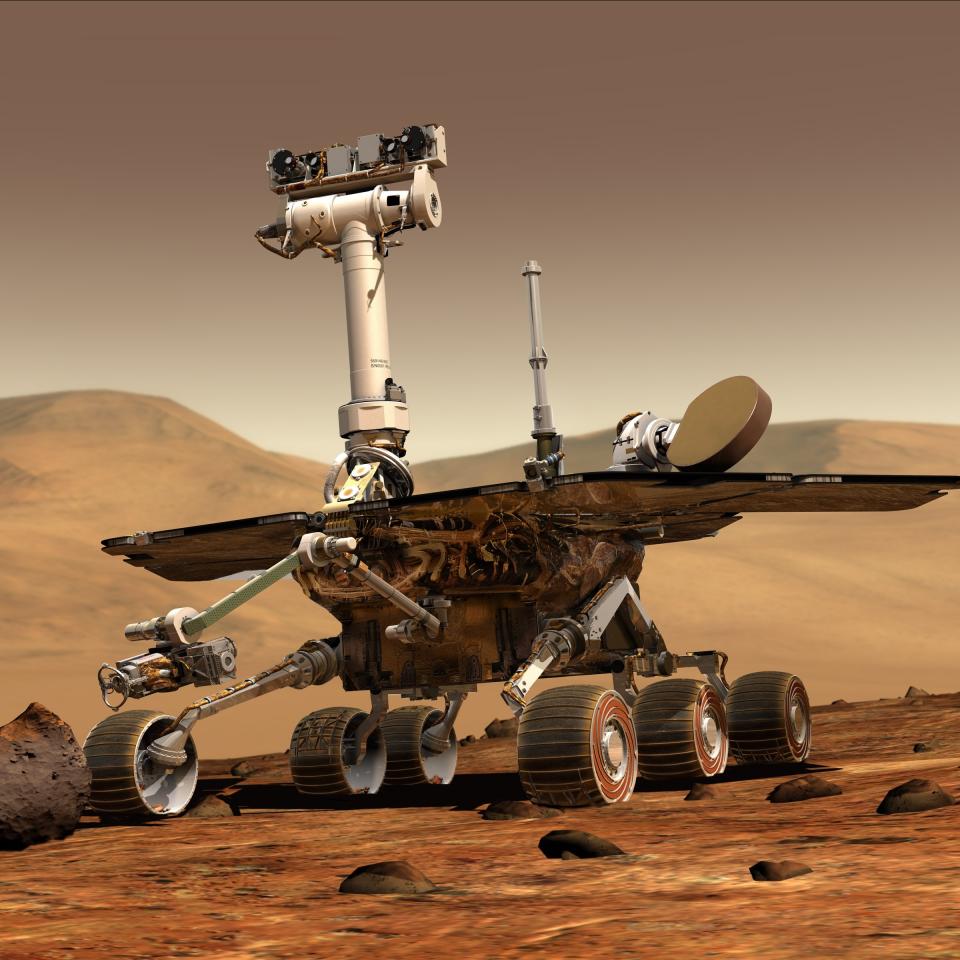
Using robots to explore new frontiers
Robotics technology developed at Aberystwyth University is being used to explore new frontiers – from building models of calving glaciers to working on international space programmes.
From factories to hospitals, the military to customer services, robots are used every day to help us work more efficiently and accurately, and to carry out tasks that are too dangerous or difficult for people.
The Intelligent Robotics Research Group (IRG) at Aberystwyth University develops robotic technology for use in many real-world situations, from under the sea all the way to space.
The team’s wide-ranging research covers robotics, optics, computer graphics and computer vision. For example, they have:
- worked with the international space industry on the ExoMars programme, developing new tools to discover and interpret planetary science. These include a planetary scouting rover, the Mars Terrain Simulator (MTS) and AU PanCam Emulator (AUPE).
- developed and deployed survey robots, including a boat to build 3D models of calving glaciers in Greenland, a cost-effective and backpack sized vehicle for the Wales Coastal Monitoring Centre, and an off-road vehicle to build 3D models of flooding riverbeds in New Zealand.
- researched how robots learn, inspired by infant development.
Discovering Mars
The IRG team’s work with the international space industry allowed project partners from industry and academia to develop new ways to analyse data from cameras used to photograph the surface and sky of Mars.
European research partners involved in the ESA ExoMars mission use the MTS to support prelaunch tests on the ground and troubleshoot operations during the mission.
AUPE has helped develop new optics and multispectral imaging expertise. It’s used in laboratory and field trials to provide the data and support necessary to train operators and rehearse mission operations. It’s also enabled industry partners to calibrate rover instruments and verify their performance.
The IRG team also created the software that provided detailed 3D images from Mars, which led to the discovery of the remains of the Beagle 2 Mars Lander (which was lost on Christmas Day 2003).
Inspiring future generations
Through their work to encourage more interest in robotics, the IRG team is visiting schools and colleges across the UK and contributed to a national outreach programme which has so far reached over 310,000 visitors to science museums across the country.
More than two-thirds of Aberystwyth Robotics Club’s first intake of students went on to study for a degree in a STEM subject. The club also provided a template to help set up robotics clubs in other places. The most recent is for 20 children in Karbala in Iraq, made possible with international development funding.
“The involvement of AU staff in preparing ExoMars has and continues to be fundamental for improving mission design, processes, streamlining operations, and getting us closer, in the not-too-distant future, to hopefully being able to find traces of life on Mars” European Space Agency
Research team
Professor Dave Barnes, Dr Fred Labrosse, Professor Mark Lee, Dr Helen Miles, Dr Mark Neal, Dr Patricia Shaw, Dr Matt Gunn and Professor Qiang Shen – Aberystwyth University’s Intelligent Robotics Research Group (IRG)
